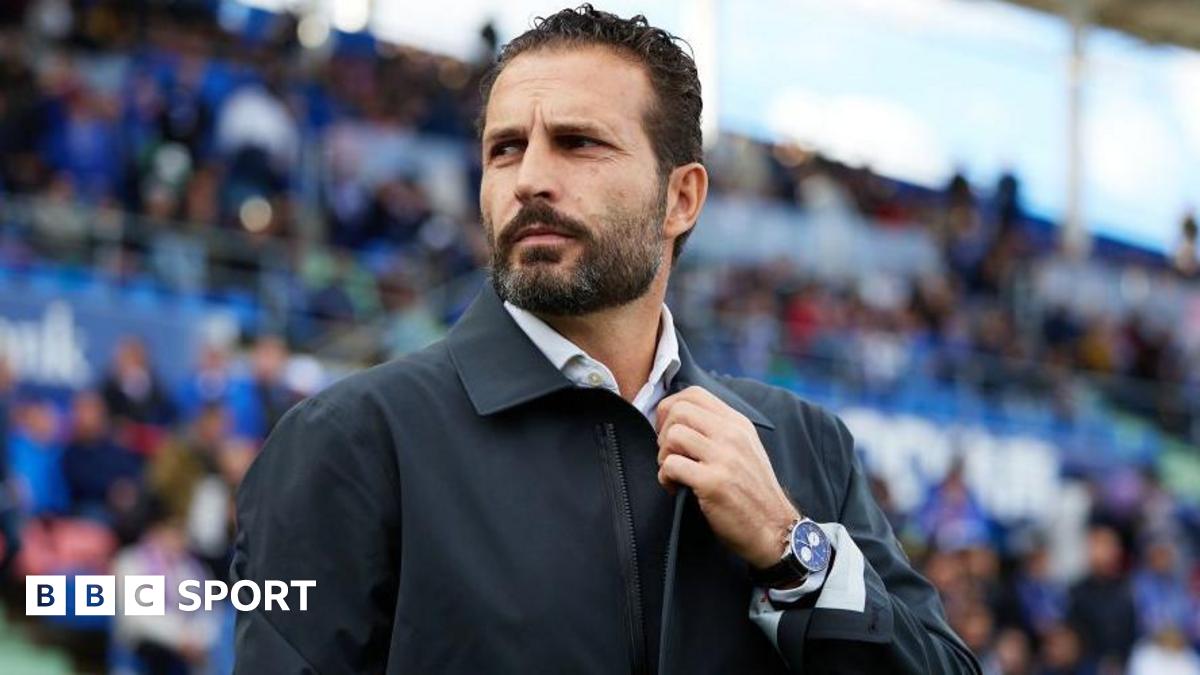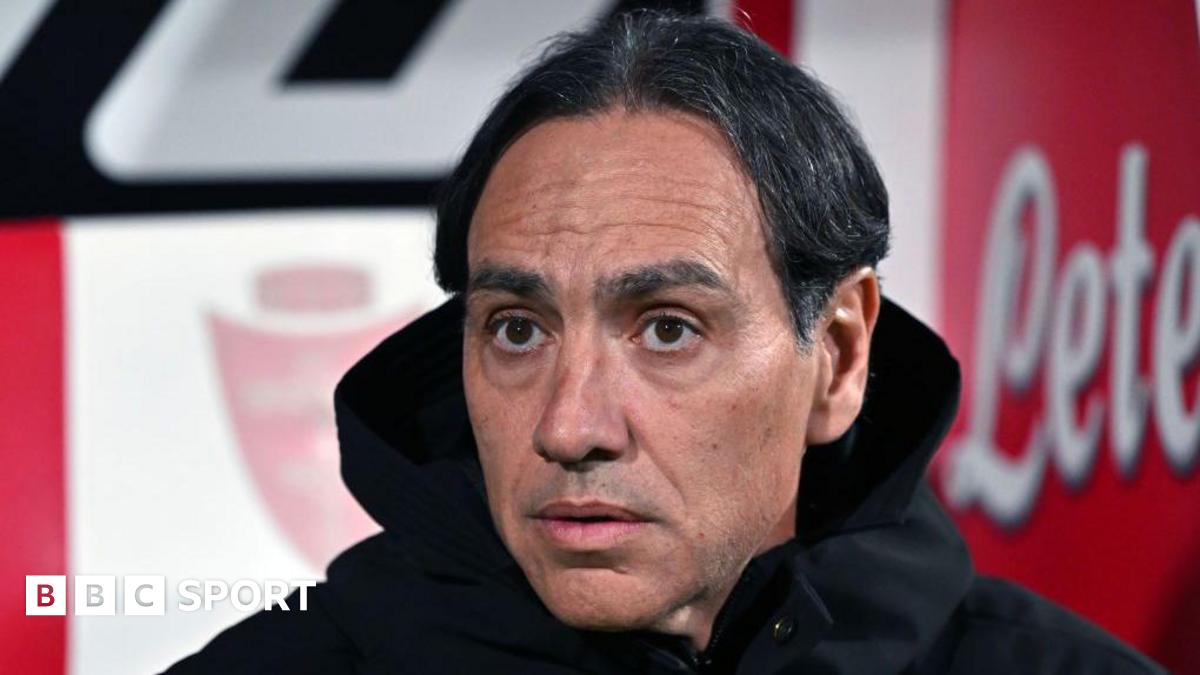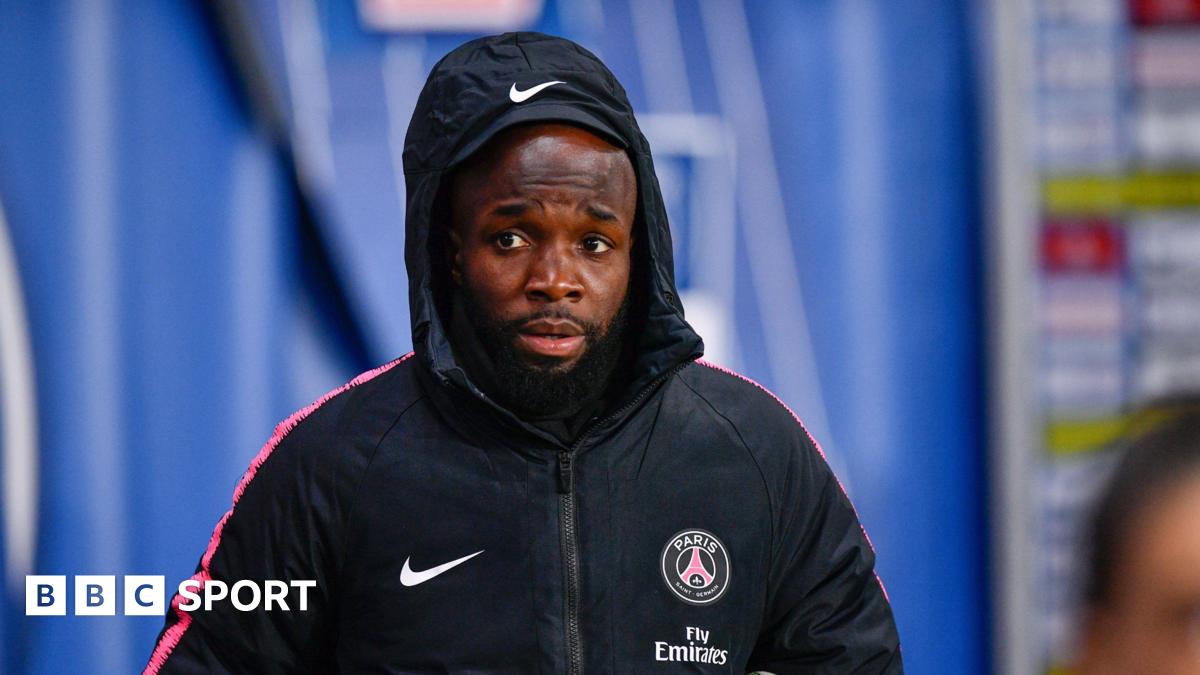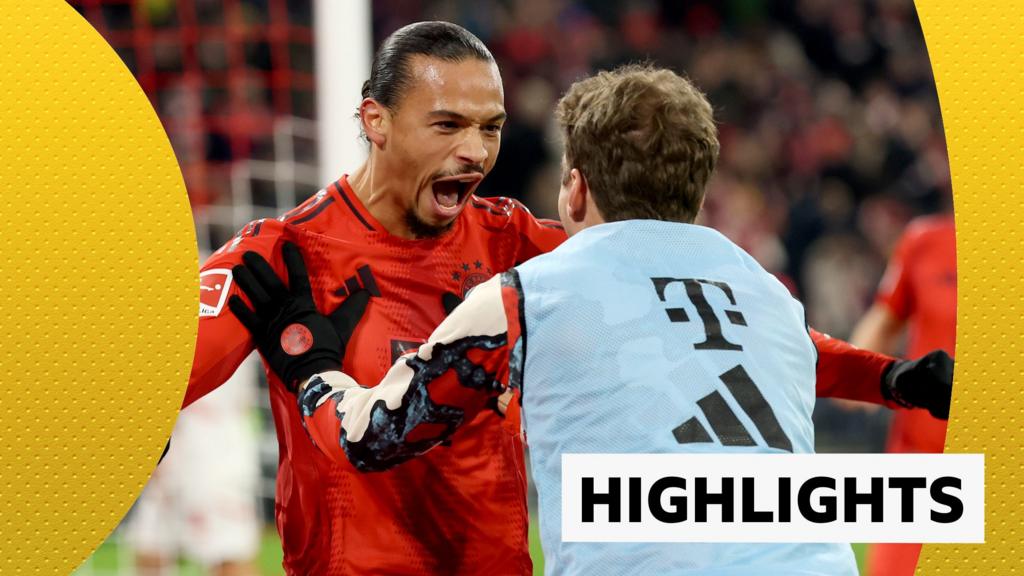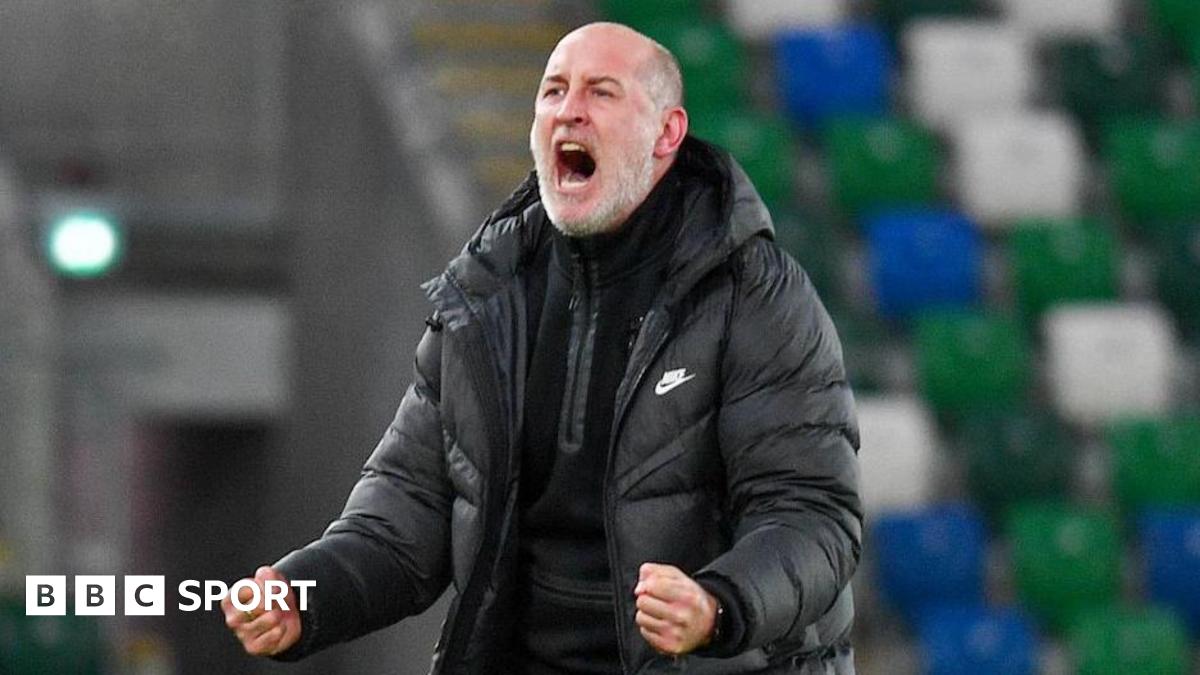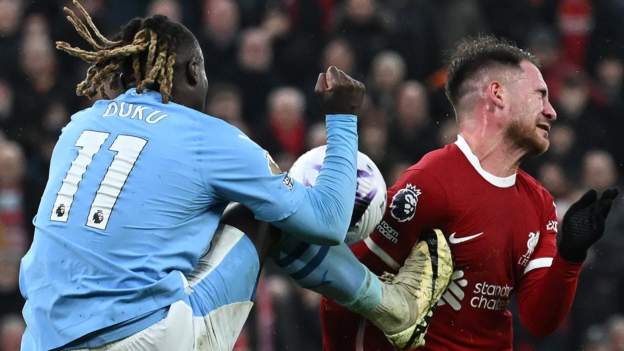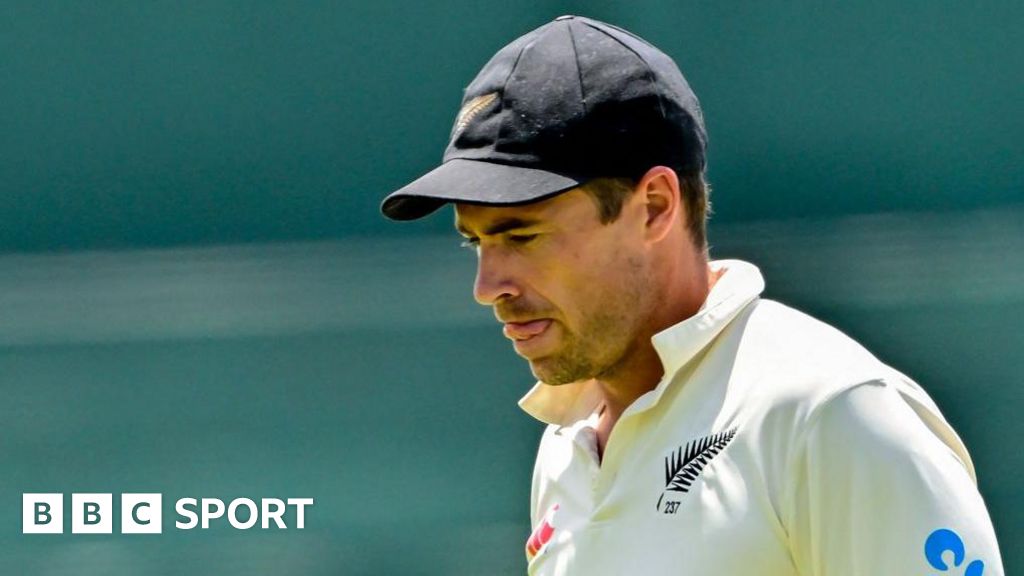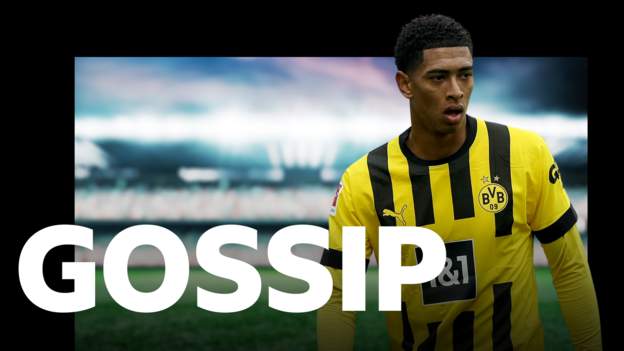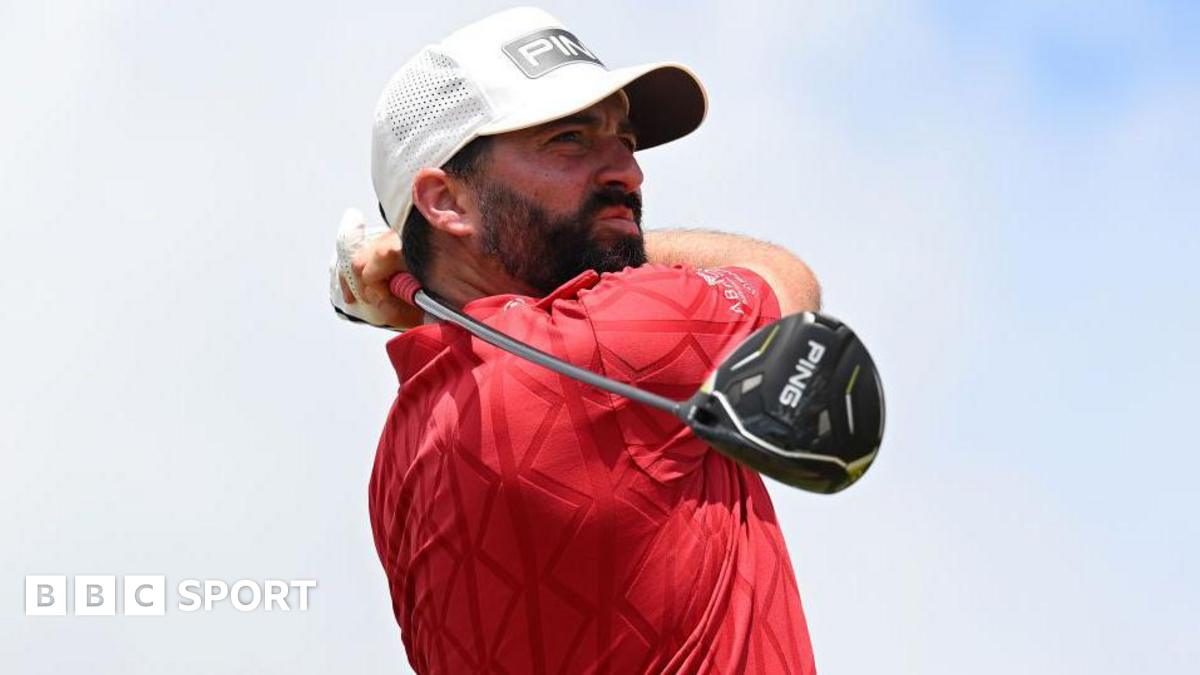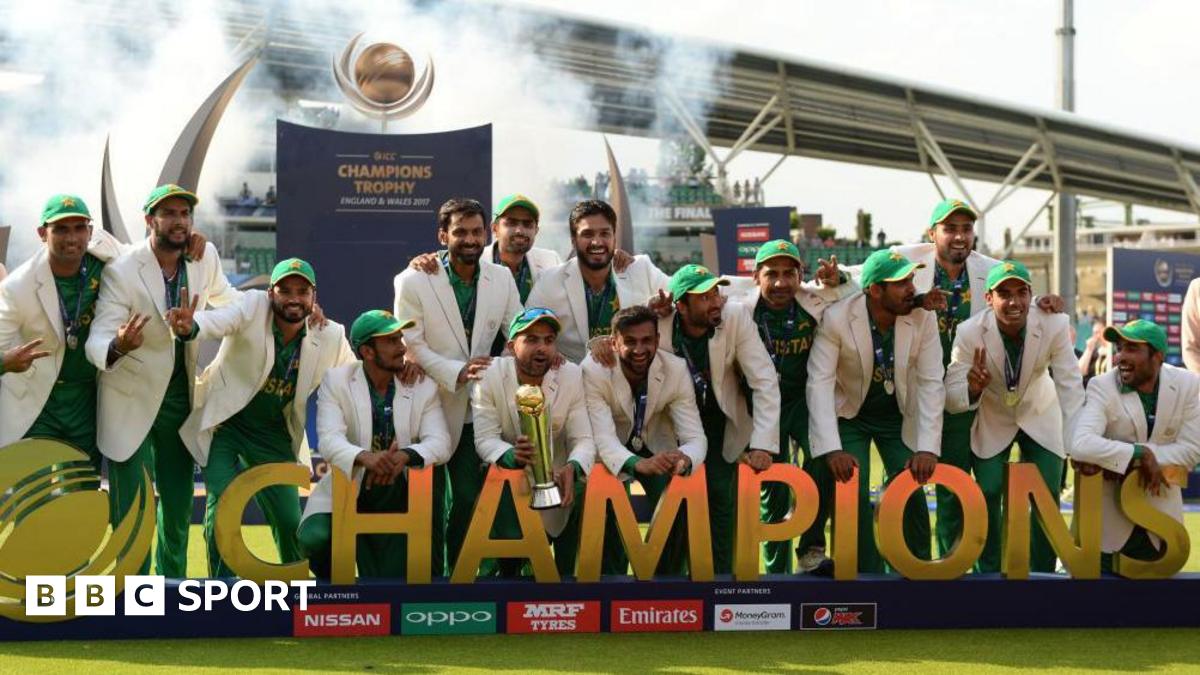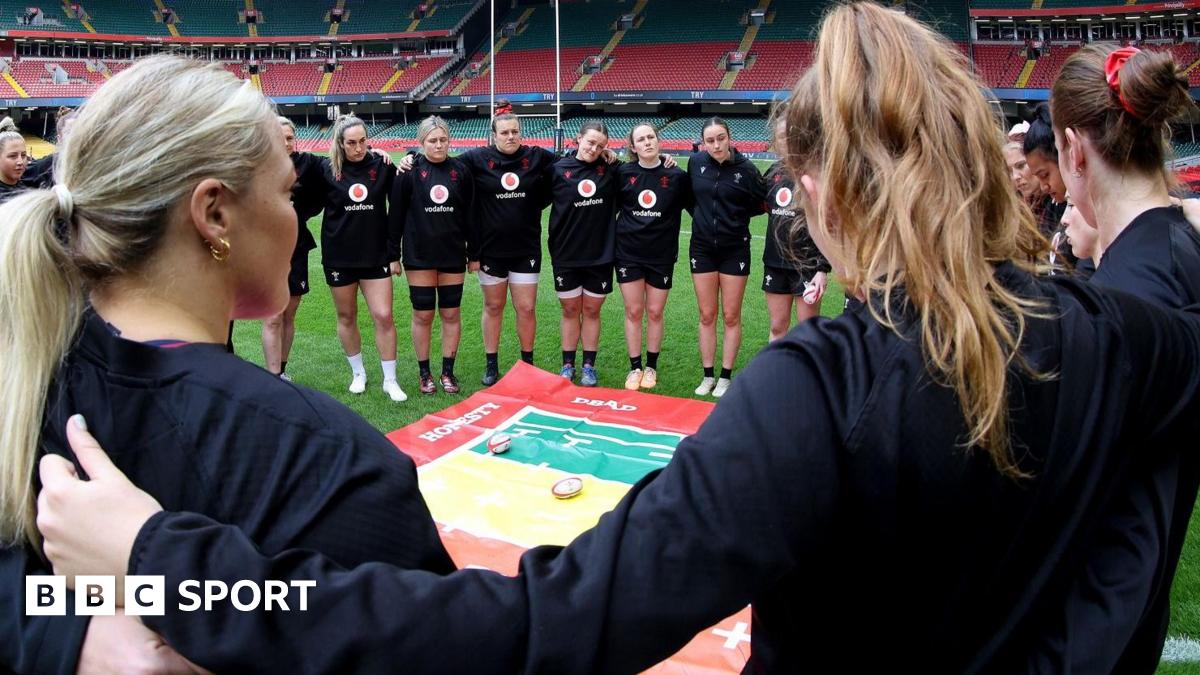Referees’ chief Howard Webb has said the video assistant referee was right not to interfere as Liverpool were not given a late penalty in their recent 1-1 draw with Manchester City.
City winger Jeremy Doku caught Alexis Mac Allister with a high boot in the area in the final seconds of the match.
But on-field referee Michael Oliver did not award the Reds a spot-kick, and VAR Stuart Attwell agreed.
“It’s split a lot of opinion, hasn’t it?” said Webb.
“It’s one of those, for sure – if the referee gives it on the field, it would have been a ‘check complete’ by the VAR.
“Equally, having not given it, it’s also ‘check complete’. You hear Michael Oliver say the ball’s in between two players going together.
“The ball is too low to head. Doku lifts his foot to play the ball, and he does make contact on the ball.
“And yes, we know there’s some contact on Mac Allister as well. Mac Allister comes into him. Mac Allister is not really playing the ball either. So, I understand why it’s split opinion.”
Liverpool manager Jurgen Klopp and Mac Allister both felt the challenge should have resulted in a penalty for their side.
“The VAR stays out of it. I think that is what we would we would expect,” added Webb on Match Officials Mic’d Up, a Premier League Productions programme which analyses VAR decisions from previous games.
“The VAR looks at it and doesn’t see a clear-and-obvious situation. You see something that’s pretty subjective and therefore stays out of it, and the feedback we’ve had from people within the game is that this is a pretty subjective situation. It’s split opinion.
“So on that basis, the VAR, working to that high threshold kind of followed the right course in not getting involved.”
Webb previously said that Liverpool should have had a penalty in December’s 1-1 draw against Arsenal, while the Reds were also on the wrong side of a decision when VAR wrongly ruled out a Luis Diaz goal in a 2-1 defeat by Tottenham – an error acknowledged by referees’ governing body PGMOL.
West Ham 1-1 Aston Villa (17 March) – Tomas Soucek goal disallowed for handball
The Hammers thought they had scored a late winner against Villa in their 1-1 draw when Tomas Soucek got on the end of James Ward-Prowse’s free-kick, which appeared to strike team-mate Jarrod Bowen before going in.
Referee Jarred Gillett awarded the goal but, after VAR Tony Harrington recommended it be disallowed for a Soucek handball after a check that took more than five minutes, Gillett reviewed the incident on a screen and agreed it should be chalked off.
“It was quite a complicated sequence, wasn’t it, with quite a lot going off?” said Webb.
“If they look at one angle and see that it’s hit Bowen’s arm, then they can very quickly just recommend that the goal gets disallowed, just like they have to worry about an offside.
“You don’t have to worry about Soucek’s involvement because the goal can never stand, but they don’t find that angle that shows it’s hit Bowen’s arm so they then go back to Soucek, check and when they look at Soucek they see that it’s the arm.
“Then there’s a question: is it deliberate or not? And that’s when they have to send the referee to the screen to have a look at it. So that again takes a bit more time.”
In the same match, Villa winger Leon Bailey saw his cross strike the arm of Hammers left-back Emerson Palmieri with the teams level.
The VAR failed to overturn the on-field decision from Gillett despite the defender’s right arm being out.
“His arm is already there and the ball actually finds his arm,” said Webb.
“It’s a bit away from the body, hence the reason why some people think they should be penalised. I think it would have been really harsh.”
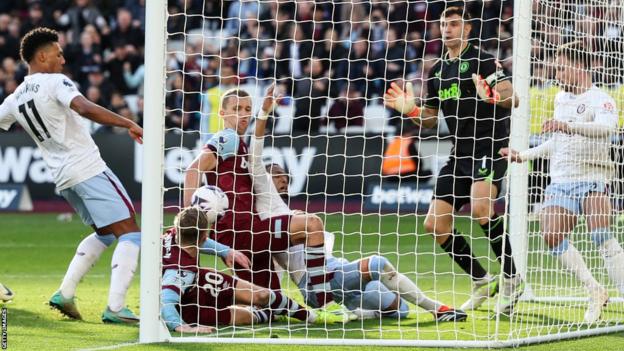
West Ham 2-2 Burnley (10 March) – no penalty awarded against Sander Berge
Another late decision that went against West Ham took place against Burnley when the Hammers came back from 2-0 down to draw 2-2.
But they were denied a penalty after the ball hit Clarets midfielder Sander Berge’s hand.
VAR Andy Madley looked at the incident and a penalty was not awarded because Berge had headed the ball onto his own hand when attempting to clear it.
“To be clear, this cannot be handball,” said Webb.
“Berge heads the ball onto his own arm. The laws of the game are quite explicit in that if a player plays the ball onto his own arm, it can’t be a handball offence.
“Unless of course, there’s a secondary action that moves the arm into the ball after the player has played it.”
The Mic’d Up programme also looked at Burnley’s Josh Brownhill getting a red card for bringing down Crystal Palace’s Jefferson Lerma on 24 February.
The game was goalless at the time and Palace went on to win 3-0.
“A pretty clear situation,” said Webb. “When we’re looking at a ‘Denial Of A Goalscoring Opportunity’, we look at four elements.
“Was the play moving towards goal? What was the distance from goal? Did the attacking player have possession and control or [was] likely to have possession or control of the ball? And what’s the location of the other defenders? Could they interject to prevent that attack?
“In this situation we see all four elements are present and, therefore, when the foul happens it’s denied an obvious goalscoring opportunity and, therefore, a red card comes in this situation.”
He added: “This situation is pretty clear, good decision by the officials.”
Aston Villa 0-4 Tottenham (10 March) – red card for John McGinn
Villa were 2-0 down to Tottenham when John McGinn made a late tackle on Spurs left-back Destiny Udogie.
Referee Christopher Kavanagh showed the Scotland midfielder a red card and VAR Tim Robinson confirmed the decision.
“What we do see is McGinn take a really strong sort of kicking action into the opponent and the law only asks us to identify whether the action has excessive force or brutality,” added Webb.
“And this one I think clearly does. The officials did as well.”



